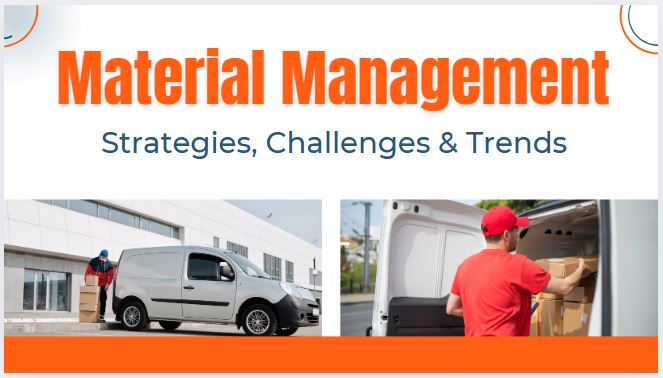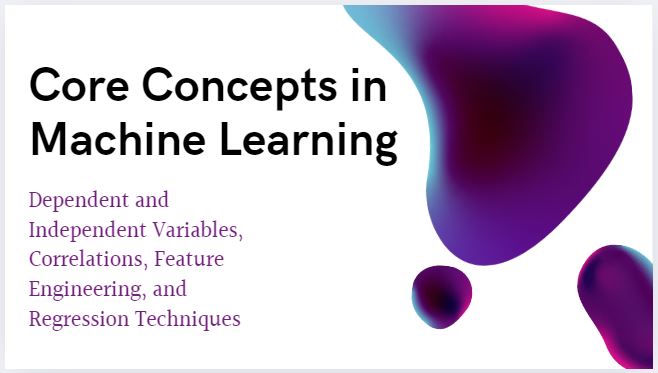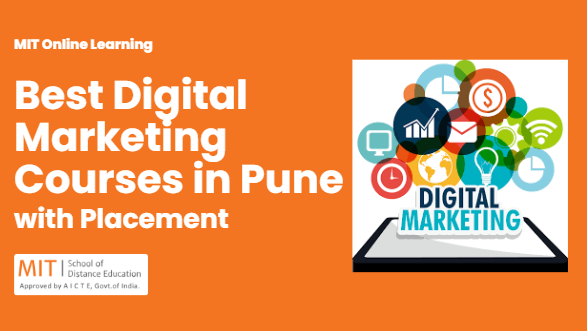
In today’s fast-paced and competitive global market, organizations need to be agile, cost-effective, and resource-efficient. One of the most important ways businesses can achieve this is through effective material management. From procurement to production and delivery, managing materials smartly can help reduce costs, enhance productivity, and ensure customer satisfaction.
This blog explores the strategies, challenges, and current trends in material management, and also discusses why pursuing a PGDM in material management can open doors to thriving career opportunities in supply chain and logistics.
 What is Material Management?
What is Material Management?
Material management refers to the systematic planning, organizing, and controlling of the flow of materials from their initial purchase through internal operations to the service point through distribution. It encompasses all activities related to materials—from procurement, storage, and movement to quality control and disposal.
An effective material management system ensures:
- Right material
- Right quantity
- Right time
- Right quality
- Right price
- Right source
It is not just about handling physical materials, but also about managing the information, systems, and relationships that support them.
 Importance of Material Management in Business Operations
Importance of Material Management in Business Operations
Material management is essential across a range of industries—manufacturing, construction, healthcare, retail, and more.
Here’s why it matters:
- Cost Control: Reduces wastage, overstocking, and understocking.
- Operational Efficiency: Ensures timely availability of materials for production.
- Improved Cash Flow: Controls inventory levels to avoid capital blockage.
- Better Supplier Relationships: Facilitates long-term collaboration through efficient procurement.
- Customer Satisfaction: Ensures timely delivery of quality products and services.
 Strategies for Effective Material Management
Strategies for Effective Material Management
Organizations implement various strategies to manage materials efficiently. Some of the most widely adopted approaches include:
1. Just-In-Time (JIT) Inventory
A lean inventory strategy where materials are received only when they are needed, minimizing storage costs and reducing waste. JIT helps businesses become more responsive to market changes.
2. ABC Analysis
Inventory is categorized into three groups:
- A: High-value items with low frequency
- B: Moderate value and frequency
- C: Low-value items with high frequency
This allows businesses to prioritize material planning and optimize inventory control.
3. Economic Order Quantity (EOQ)
EOQ helps businesses determine the most cost-effective quantity to order, balancing ordering costs and holding costs.
4. Vendor-Managed Inventory (VMI)
This strategy allows suppliers to manage inventory levels at the buyer’s location. It improves supply chain collaboration and reduces stockouts.
5. Integrated ERP Systems
Using ERP (Enterprise Resource Planning) systems to manage procurement, warehouse, inventory, and delivery processes increases visibility, reduces human errors, and improves coordination across departments.
6. Standardization and Quality Control
Standardizing materials ensures compatibility, simplifies inventory management, and improves quality across production lines.
 Challenges in Material Management
Challenges in Material Management
Despite its significance, many businesses struggle with material management due to several challenges:
1. Uncertain Supply Chain Conditions
Global events like pandemics, wars, or natural disasters can disrupt supply chains, leading to delays, shortages, and cost fluctuations.
2. Inventory Mismanagement
Overstocking leads to higher holding costs, while understocking can halt production. Striking a balance is a constant challenge.
3. Inadequate Demand Forecasting
Without accurate forecasting, businesses risk ordering the wrong quantity of materials, leading to wastage or unmet demand.
4. Technology Integration Issues
Many companies still rely on outdated systems, which makes it difficult to integrate modern technologies like IoT or AI into their processes.
5. Lack of Skilled Workforce
The field of material management demands professionals who understand not just logistics, but also data analysis, strategic sourcing, and technology. There’s a growing skill gap in the industry.
 Trends Shaping the Future of Material Management
Trends Shaping the Future of Material Management
With the rise of digital transformation and sustainability initiatives, material management is rapidly evolving.
Here are the key trends to watch:
1. Digital Twins
A digital twin is a virtual model of a physical process or system. In material management, it can simulate the flow of materials, identify bottlenecks, and optimize operations.
2. IoT-Enabled Inventory Tracking
Sensors and IoT devices provide real-time tracking of materials, improving accuracy and allowing proactive responses to delays or shortages.
3. Artificial Intelligence (AI) & Predictive Analytics
AI tools can predict material requirements, optimize procurement cycles, and analyze supplier performance, reducing costs and improving efficiency.
4. Sustainable Material Management
Businesses are adopting green practices like recycling, waste reduction, and eco-friendly sourcing to meet environmental standards and consumer demand for sustainability.
5. Blockchain for Transparency
Blockchain provides a tamper-proof record of material movement across the supply chain, ensuring traceability, reducing fraud, and improving supplier accountability.
6. Cloud-Based Material Management Systems
Cloud platforms offer better scalability, flexibility, and real-time collaboration across multiple departments and locations.
 Career Opportunities in Material Management
Career Opportunities in Material Management
As industries become more interconnected and digitally enabled, the demand for professionals skilled in material and supply chain management continues to rise.
Roles in this field include:
- Materials Manager
- Supply Chain Analyst
- Procurement Manager
- Inventory Control Manager
- Logistics Coordinator
- Warehouse Operations Manager
These roles require strong analytical, planning, and communication skills. Technical knowledge of ERP systems, forecasting tools, and lean practices is also essential.
 Why Pursue a PGDM in Material Management?
Why Pursue a PGDM in Material Management?
A PGDM in Material Management is an excellent option for individuals who want to build a career in supply chain, procurement, or operations. Here’s why:
1. Specialized Knowledge
The program covers core topics like inventory control, strategic sourcing, logistics management, supply chain optimization, and ERP systems.
2. Industry-Relevant Curriculum
Courses are often updated to reflect the latest industry trends, including the use of AI, blockchain, and green supply chain practices.
3. Hands-On Learning
Many PGDM programs include case studies, real-world projects, and internships to give students practical experience.
4. Career Growth & Networking
PGDM graduates often land mid to senior-level roles in logistics, manufacturing, e-commerce, and retail sectors. The program also offers networking opportunities through industry interactions and alumni connections.
5. Higher Earning Potential
Professionals with a PGDM in material management tend to earn more than their non-specialized peers, especially in managerial roles.
 Who Should Consider a PGDM in Material Management?
Who Should Consider a PGDM in Material Management?
- Fresh graduates interested in operations and logistics
- Working professionals looking to upskill or switch careers
- Engineers wanting to move into management roles
- Business owners who want to improve inventory and procurement processes
Whether you’re aiming for career growth, higher pay, or a transition into a new domain, a PGDM in material management can give you the knowledge and tools you need.
 Conclusion
Conclusion
Material management is no longer just a backend operation—it’s a strategic function that directly impacts a company’s bottom line and customer satisfaction. With the right strategies, companies can reduce costs, increase efficiency, and gain a competitive edge. However, challenges like supply disruptions, tech integration, and talent gaps must be addressed to unlock its full potential.
For aspiring professionals, pursuing a PGDM in material management is a smart move. It equips you with the necessary skills, industry insights, and leadership capabilities to excel in this vital field. As industries continue to evolve, so does the importance of effective material management—and now is the perfect time to be part of that transformation.


